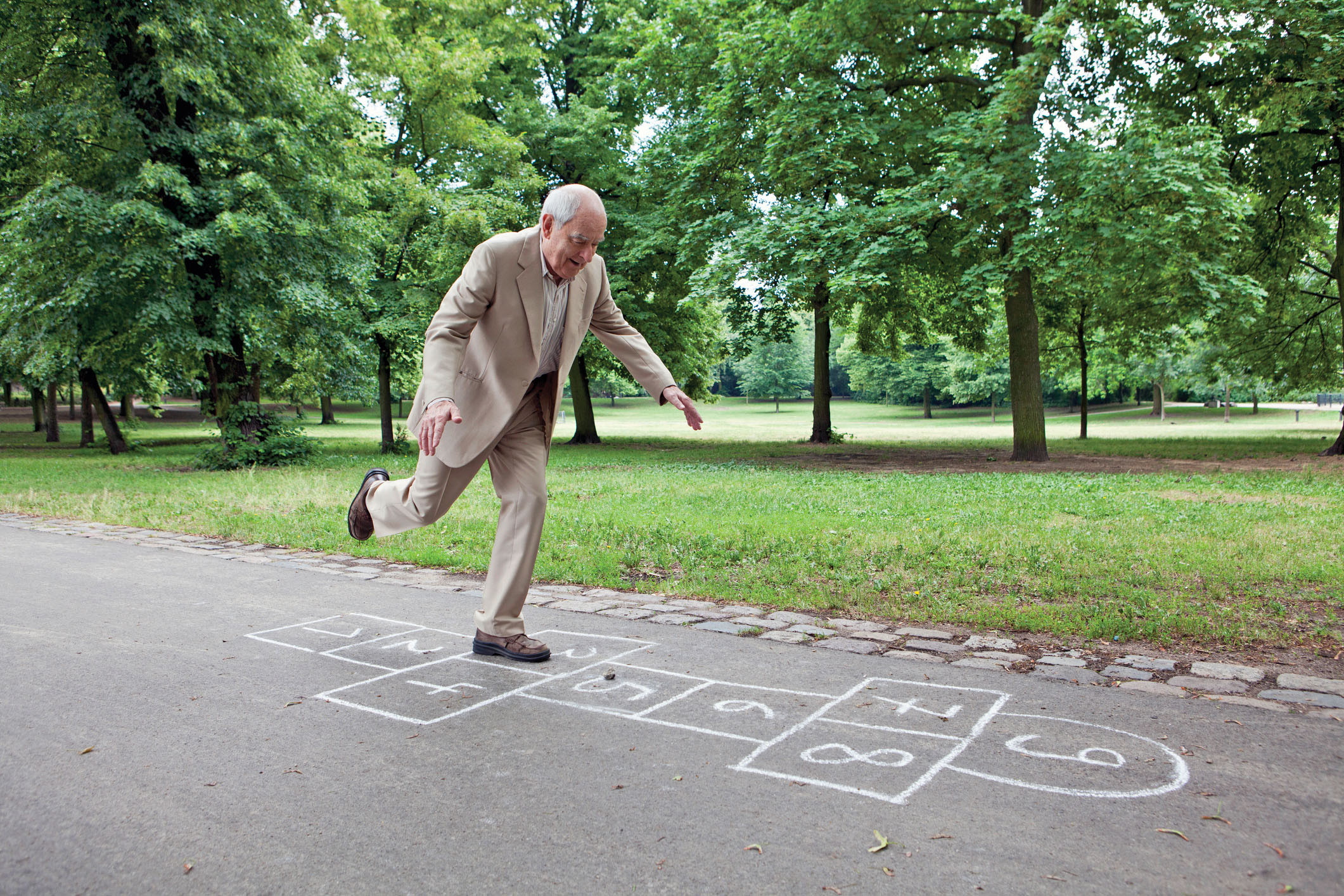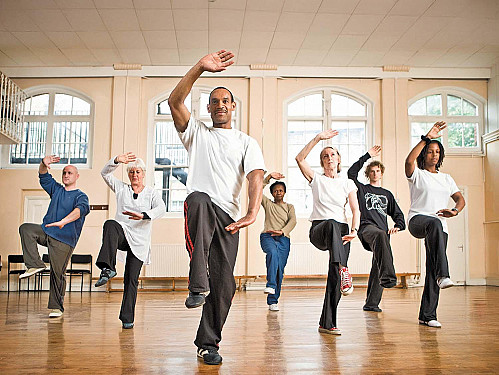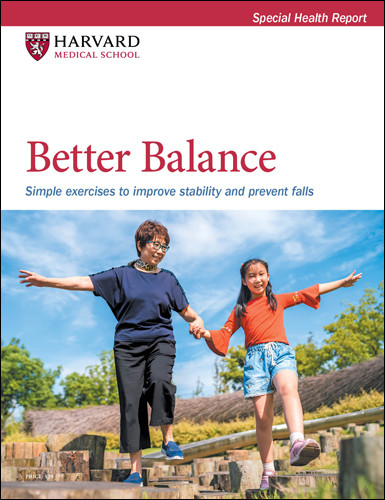Better balance may mean a longer life
News briefs
- Reviewed by Anthony L. Komaroff, MD, Editor in Chief, Harvard Health Letter; Editorial Advisory Board Member, Harvard Health Publishing

A study published online June 21, 2022, by the British Journal of Sports Medicine found that people who are unable to stand on one leg for 10 seconds in middle and later life have almost double the usual risk of premature death. Researchers evaluated the health information and balance test results of 1,700 people (ages 51 to 75, and all free of walking problems), and then followed them for seven years. During the study, 123 participants died of various causes. After taking participants' age, underlying conditions, weight, and other factors into account, scientists determined that failing the balance test was associated with an 84% higher risk of dying within the study period, compared with passing the balance test. The study was observational and found only an association (not a cause-and-effect relationship) between balance ability and early death. But if you want to give the test a try, it happens also to be a good way to boost balance — which reduces your risk of falls, regardless of any possible effect on longevity. Here's what to do: Stand near a counter (for support if necessary). To balance on your left leg, keep your arms at your sides and slowly place the top of your right foot on your left calf. Stand that way for 10 seconds. Then repeat, reversing leg positions. Practice every day, and see how much your balance improves.
Image: © Carl Smith/Getty Images
About the Author

Heidi Godman, Managing Director
About the Reviewer

Anthony L. Komaroff, MD, Editor in Chief, Harvard Health Letter; Editorial Advisory Board Member, Harvard Health Publishing
Disclaimer:
As a service to our readers, Harvard Health Publishing provides access to our library of archived content. Please note the date of last review or update on all articles.
No content on this site, regardless of date, should ever be used as a substitute for direct medical advice from your doctor or other qualified clinician.
















